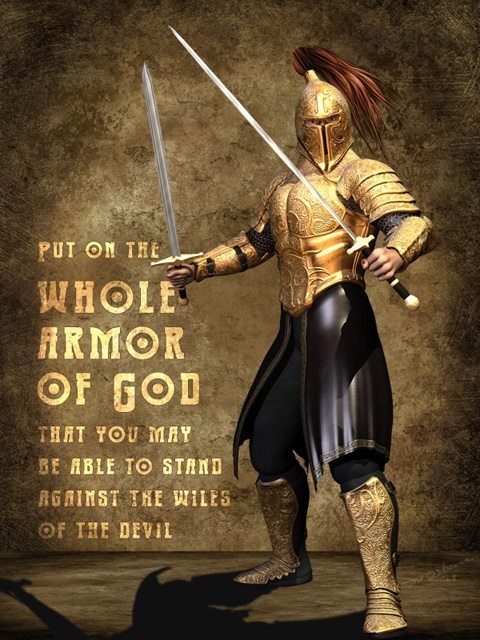
Lisa Thornton begins her encounter with Ephesians 6:10-20 by suggesting we do a google image search “armor of God” — and see the resulting images of battle armor. This makes sense in the world we live in today. She mentions Malcolm Gladwell’s podcast on “The Little Mermaid,” and how most of the film is problematic in terms of redemption. The antagonist is eliminated at the end. This isn’t unique to Disney or to movies and stories in pop-culture. This is, in the words of Walter Wink, the myth of redemptive violence. It “enshrines the belief that violence saves, that war brings peace, that might makes right.” This myth is one of the oldest continuously repeated stories of the world. Yet it provides divine legitimation for the suppression of poor people everywhere, and the extraction of wealth from poor nations. The myth of redemptive violence does not seek God in order to change, it embraces God in order to prevent change. It’s offer is not forgiveness but victory.

Paul, the author of Ephesians, uses this imagery because it was familiar to his readers. And though we don’t have soldiers marching our streets, we don’t have to go far to envision someone in modern armor. But this is human armor. Paul is giving a new way to understand and redefine armor, hoping to escape the myth of violence. He is saying that we need a different kind of armor. We need God’s armor. This is armor not for an individual, but for the community. It’s a new identity we wear to help us carry the word of peace, not violence.
Here more as Lisa fleshes out both the systems of violence we live in, and the armor that God provides to equip us with the possibility of living a new life based in love.
